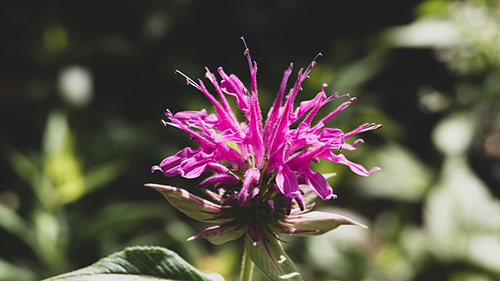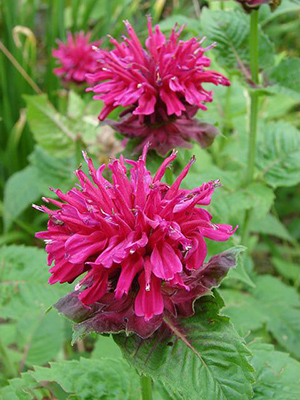Contents
The Oswego tea plant has a pleasant aroma that resembles peppermint. In America, it has been used as a substitute for tea. North American natives, who lived in harmony with their environment, included Oswego tea in the bride’s gifts because it regulates menstruation.

Oswego Tea Plant Scientific Facts
- Scientific Name – Monarda didyma L.
- Other Names – Oswego tea.
- French – Monarde.
- Spanish – Monarda.
- Environment – Native America, cultivated as an ornamental plant, also became cultivated with the same aims in Europe.
- Description—This plant of the Labiatae family grows from 60 to 80 cm high. It has a quadrangular stem, opposite, toothed leaves, and terminal flowers with bilabiated bright red petals.
- Parts of the plant used medicinally – The flowers.
Healing Properties

Oswego tea FLOWERS contain diverse essential oils, bitter components, and anthocyanine (monarderine), its main properties.
- It eases menstruation pain and helps normalize the menstrual cycle.
- Carminative (eliminates gas and flatulence) – Bee balm flowers promote digestion and ease nausea and vomiting.

Horsemint
All over America, a species similar to this plant, the so-called horsemint (Monarda punctata L.), has sudorific, diuretic, carminative, and heart-invigorating properties.
How to use Oswego Tea
- Infusion: Add a spoonful of flowers (20 g) to a cup of water. Drink two or three cups daily.
DISCLAIMER: All content on this website is presented solely for educational and informational objectives. Do not rely on the information provided as a replacement for advice, diagnosis, or treatment from a qualified medical expert. If you are pregnant, nursing, or have any preexisting medical concerns, talk to your doctor before using any herbal or natural medicines.
REFERENCES
- George D. Pamplona-Roger, M.D. “Encyclopedia of Medicinal Plants.” George D. Pamplona-Roger, M.D. Encyclopedia of Medicinal Plants. Ed. Francesc X. Gelabert. vols. 2 San Fernando de Henares: Editorial Safeliz, 2000. 634. Print.
- National Institutes of Health (NIH): https://www.ncbi.nlm.nih.gov/pmc/articles/PMC7797792/
- WebMD: https://www.webmd.com/vitamins/ai/ingredientmono-169/oswego-tea
